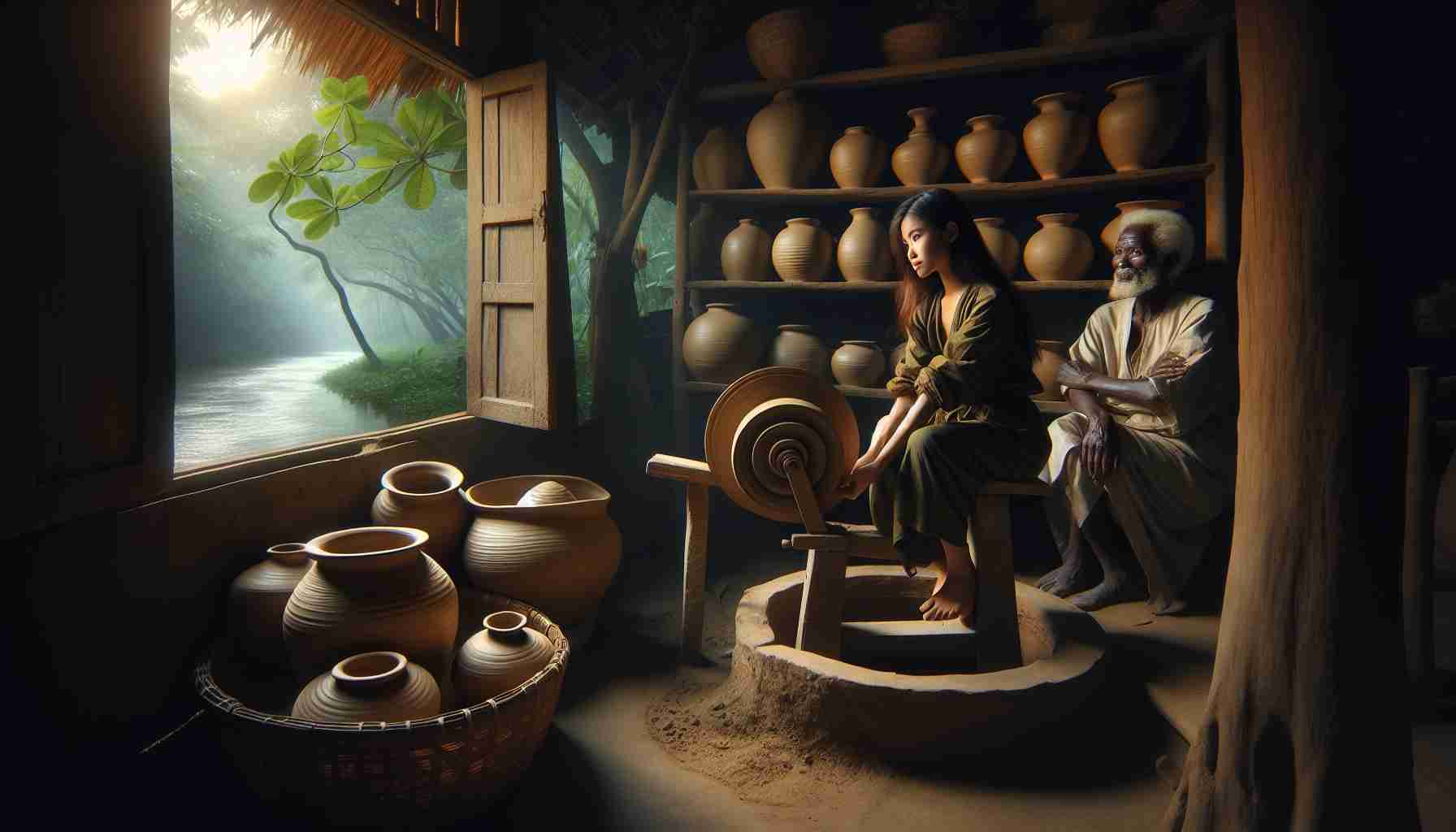

I had always believed that the harder I worked, the better everything would be. I was just a young potter in a village near the mountains, and every day, I woke before the sun and shaped clay long into the night. People liked my pots—strong, smooth, and the same every time. But still, I felt something missing. They were perfect in shape, but had no spirit.
One morning, the village elder, Old Master Wen, came to visit my shop. He had a long white beard and eyes filled with quiet kindness.
“You work very hard,” he said, watching me shape another pot.
I wiped my brow. “Yes, Master Wen. I want my work to be the best.”
He smiled gently and picked up one of my pots. “It is strong. But are you flowing with the clay, or forcing it?”
“I’m shaping it the way it should be,” I said proudly.
He didn’t argue. He only looked out the window at the trees that danced softly in the breeze. “Have you ever visited the river?” he asked.
“No,” I said. “Too busy.”
“Go,” he said. “Take the day off. Watch the river.”
I didn’t understand, but out of respect, I went.
At the river, I sat on a rock and watched the water. It didn't rush or push. It moved around stones instead of fighting them. Leaves floated peacefully. Birds skimmed across without effort. Everything moved—but nothing seemed to try.
I stayed there for hours. The river didn’t talk, but it taught.
When I returned, I tried something different. I let the clay shape itself a little. I didn’t force lines or fight the curves. I moved my hands gently, like water. The pot that slowly rose from my wheel that day was unlike any I had made. It was uneven in spots, but beautiful—soft and wild, like a story whispered in the wind.
People came to see it. “This pot feels... alive,” one woman said. “Did you mean it to look this way?”
I wasn’t sure what to say. “I let it become what it wanted,” I answered.
Master Wen came by again. He nodded at my new pot but said nothing. Instead, he sat down and closed his eyes, smiling.
That day, I learned what he meant.
In Taoism, we call it Wu Wei—non-action, or effortless action. It doesn’t mean doing nothing. It means not forcing, not controlling, but flowing like the river.
Since then, I still wake before the sun. I still shape the clay. But I listen more. I let go a little.
My pots are no longer perfect in shape—but they hold something deeper now. They carry the spirit of stillness, the quiet strength of water, and the joy of simple being.
I didn’t change all at once. But now, when I feel pressure to push or control, I remember the river.
I still walk its banks often.
And I’m still learning to flow.
I had always believed that the harder I worked, the better everything would be. I was just a young potter in a village near the mountains, and every day, I woke before the sun and shaped clay long into the night. People liked my pots—strong, smooth, and the same every time. But still, I felt something missing. They were perfect in shape, but had no spirit.
One morning, the village elder, Old Master Wen, came to visit my shop. He had a long white beard and eyes filled with quiet kindness.
“You work very hard,” he said, watching me shape another pot.
I wiped my brow. “Yes, Master Wen. I want my work to be the best.”
He smiled gently and picked up one of my pots. “It is strong. But are you flowing with the clay, or forcing it?”
“I’m shaping it the way it should be,” I said proudly.
He didn’t argue. He only looked out the window at the trees that danced softly in the breeze. “Have you ever visited the river?” he asked.
“No,” I said. “Too busy.”
“Go,” he said. “Take the day off. Watch the river.”
I didn’t understand, but out of respect, I went.
At the river, I sat on a rock and watched the water. It didn't rush or push. It moved around stones instead of fighting them. Leaves floated peacefully. Birds skimmed across without effort. Everything moved—but nothing seemed to try.
I stayed there for hours. The river didn’t talk, but it taught.
When I returned, I tried something different. I let the clay shape itself a little. I didn’t force lines or fight the curves. I moved my hands gently, like water. The pot that slowly rose from my wheel that day was unlike any I had made. It was uneven in spots, but beautiful—soft and wild, like a story whispered in the wind.
People came to see it. “This pot feels... alive,” one woman said. “Did you mean it to look this way?”
I wasn’t sure what to say. “I let it become what it wanted,” I answered.
Master Wen came by again. He nodded at my new pot but said nothing. Instead, he sat down and closed his eyes, smiling.
That day, I learned what he meant.
In Taoism, we call it Wu Wei—non-action, or effortless action. It doesn’t mean doing nothing. It means not forcing, not controlling, but flowing like the river.
Since then, I still wake before the sun. I still shape the clay. But I listen more. I let go a little.
My pots are no longer perfect in shape—but they hold something deeper now. They carry the spirit of stillness, the quiet strength of water, and the joy of simple being.
I didn’t change all at once. But now, when I feel pressure to push or control, I remember the river.
I still walk its banks often.
And I’m still learning to flow.